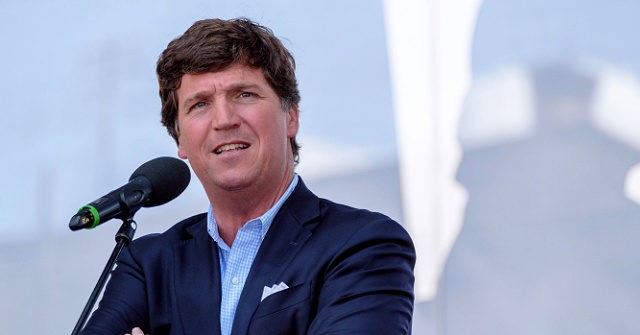The document arrived a day before the race, and he got in with only a few hours to spare, set to compete with runners who had not just stepped off a plane.
Omanyala told The Washington Post he applied for a visa with the rest of the Kenyan team July 7. The majority of his teammates received visas the next day, Omanyala said. His never showed up, for reasons that remained unclear to him. He faulted the U.S. Embassy in Nairobi for the unexplained delay.
“It’s really disappointing, and I hope they do better next time,” Omanyala said. “I know they are hosting the Olympics in 2028, so I really hope they learn from this and do much better next time.”
When Omanyala woke up Thursday morning, “I had already given up coming here,” Omanyala said. “I was supposed to run on Friday. God works miracles.”
After the visa finally arrived Thursday, Omanyala boarded a five-hour flight from Nairobi to Doha at 6 p.m. He flew 14 hours to Seattle, getting nine hours of sleep in business class. His one-hour flight from Seattle to Eugene landed three hours before his race. He drove directly to Hayward Field.
Omanyala finished his first-round heat in third place at 10.10 seconds, well off his season-best time of 9.85 but good enough to advance him to Saturday’s semifinals.
“I felt like my glutes are on fire,” Omanyala said. “I’m glad I made it to the semifinals. That’s the main thing.”
Despite his disappointment, Omanyala chatted amiably with reporters for more than 20 minutes Friday night, smiling and expressing gratitude he had been able to run and advance.
“In life, you cannot force issues,” Omanyala said. “I learned that you have to relax in every situation so that things can work out.”
Visa records are confidential by law, Andrew Veveiros, a spokesman for the U.S. Embassy in Nairobi, wrote in a WhatsApp message to The Post Saturday, “therefore we cannot discuss the details of individual visa cases.”
In this case, U.S. authorities may not be at fault. Kenya’s Directorate of Criminal Investigations launched a probe into the circumstances behind the delay in Omanyala’s visa, Kenyan media reported.
George Kinoti, the director of the office, told local reporters Friday that the Ministry of Sports had asked him to investigate allegations of bribery and inclusion of non-officials — so-called “joyriders” — on the list of travelers for the trip. Officials from the State Department of Sports rejected the claims, news site Nation.Africa reported.
Kenyan sports officials said Omanyala had failed to disclose some information on his visa application, which contributed to the delay.
Omanyala’s manager, Marcel Viljoen, told The Post he doubts that explanation.
“As far as I know the whole team went to the embassy at the same time. Ferdinand is accustomed to the process and definitely knows the implications of leaving out information. So I doubt it,” he wrote in a WhatsApp message.
Viljoen said Saturday morning he had not asked Omanyala about the claim so as not to disrupt the runner’s preparations for his Saturday night race.
But Omanyala’s close call touched a nerve across the continent, where residents hoping to travel to the United States often face difficulties. Athletes from Kenya and across Africa have long faced trouble getting U.S. visas in a timely fashion, and Omanyala’s problems drew widespread attention in Kenya, where thousands often face far slower timelines for visas than athletes do.
African athletes were given the option to fast-track their visa applications, but delays have been significant — some roughly six to eight months, Viljoen told The Post on Friday. World Athletics and the organizing committee for the event in Oregon worked with participants around the world to help resolve visa issues, but 20 athletes or officials had their applications refused, according to a statement sent to The Post.
A Nigerian sports official, speaking to the Guardian, said that some Nigerian athletes have had to pull out of competitions at the last minute because of visa problems. He said that despite paying visa fees in April, some athletes were given consular appointments for dates in March 2024.
“Before the American government accepted to host this World Athletics Championships, I expected their embassies around the world to treat the athletes, coaches and accredited journalists with respect,” the unidentified official told the Guardian. “I am sure this kind of treatment won’t be meted to athletes, officials and journalists from Great Britain, Germany and Australia.”
South African media outlet MSN reported that several runners traveling from Cape Town to Oregon were stranded in Italy because of visa problems.
Omanyala’s delay sparked a reaction on social media, as Kenyans posted about the setbacks for athletes or their own waits — some taking the conspiratorial line that the United States was “deliberately” withholding the athletes’ visas, fearing that they would defeat their American competitors. Others, including students, complained about the uphill battle they face to enter the United States, without the fame of star athletes to help them advocate for faster processing.
In 2020, in light of the coronavirus pandemic, the State Department announced suspensions for all routine visa services in most countries around the world — a move that has affected hundreds of thousands of people seeking refugee status and nonimmigrant visas.
While the website of the U.S. Embassy in Nairobi says that visa applications have resumed, officials note that they “are faced with a significant backlog of cases resulting from closures due to COVID-19” and that “all applicants should expect delays.”
According to the State Department’s Bureau of Consular Affairs, the average wait time for a U.S. visitor visa appointment in Nairobi is 687 days — more than 3.5 times the average wait time for a U.S. traveler visa in London. The website also notes it takes roughly 665 days to get an appointment to process a U.S. student visa.
In a statement sent to The Post, State Department spokesman Ned Price said visas are handled on a case-by-case basis.
Dennis Kiogora, founder of the Kenya Airlift Program, an initiative connecting postgraduate students from Kenya to universities across the United States, said most students in his program could not secure visas ahead of a September start date.
“It is a huge crisis for us because we have so many bright students who have already been admitted to universities in the U.S.,” he said. “Most students who are supposed to report in September have [visa] appointment dates in 2023.” Kiogora added that since May, only 20 out of 140 students have received visas to the United States.
Allan Ngaruiya, 32, a participant in the Airlift Program, said that even with delays, he won’t be able to start his studies in the spring. He said his sponsor withdrew funding for his studies because of visa issues.




















Discussion about this post